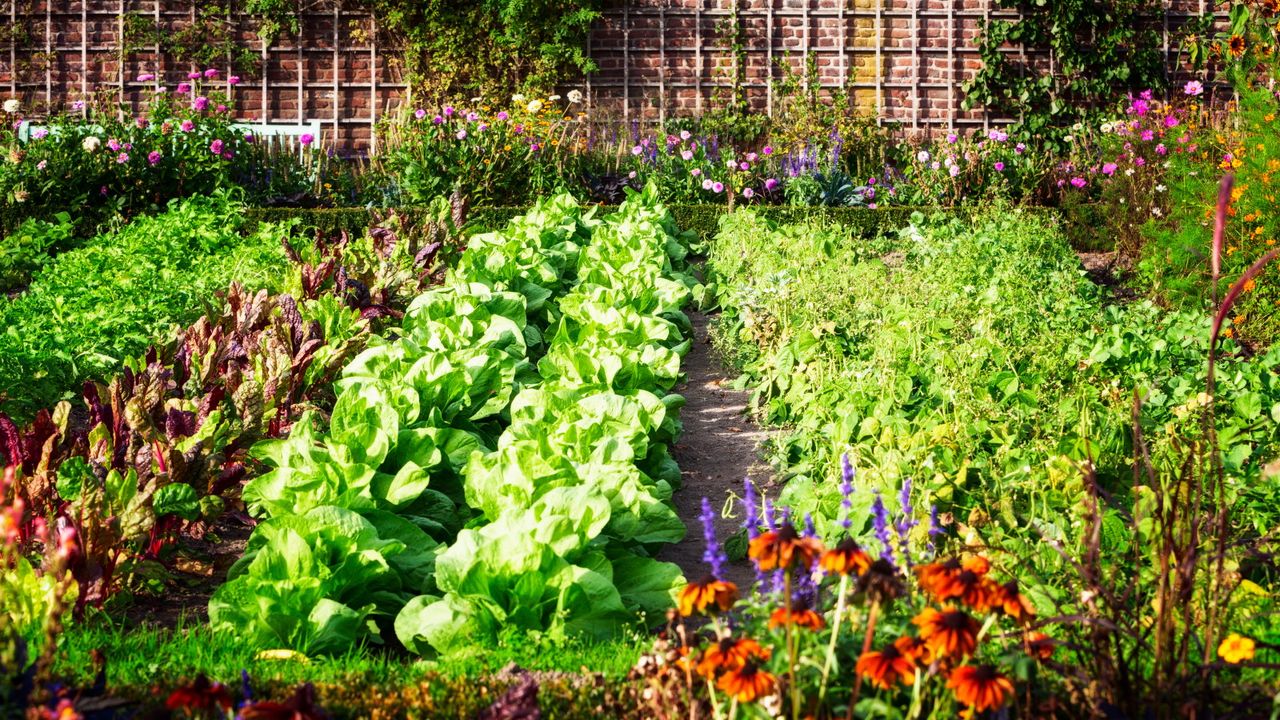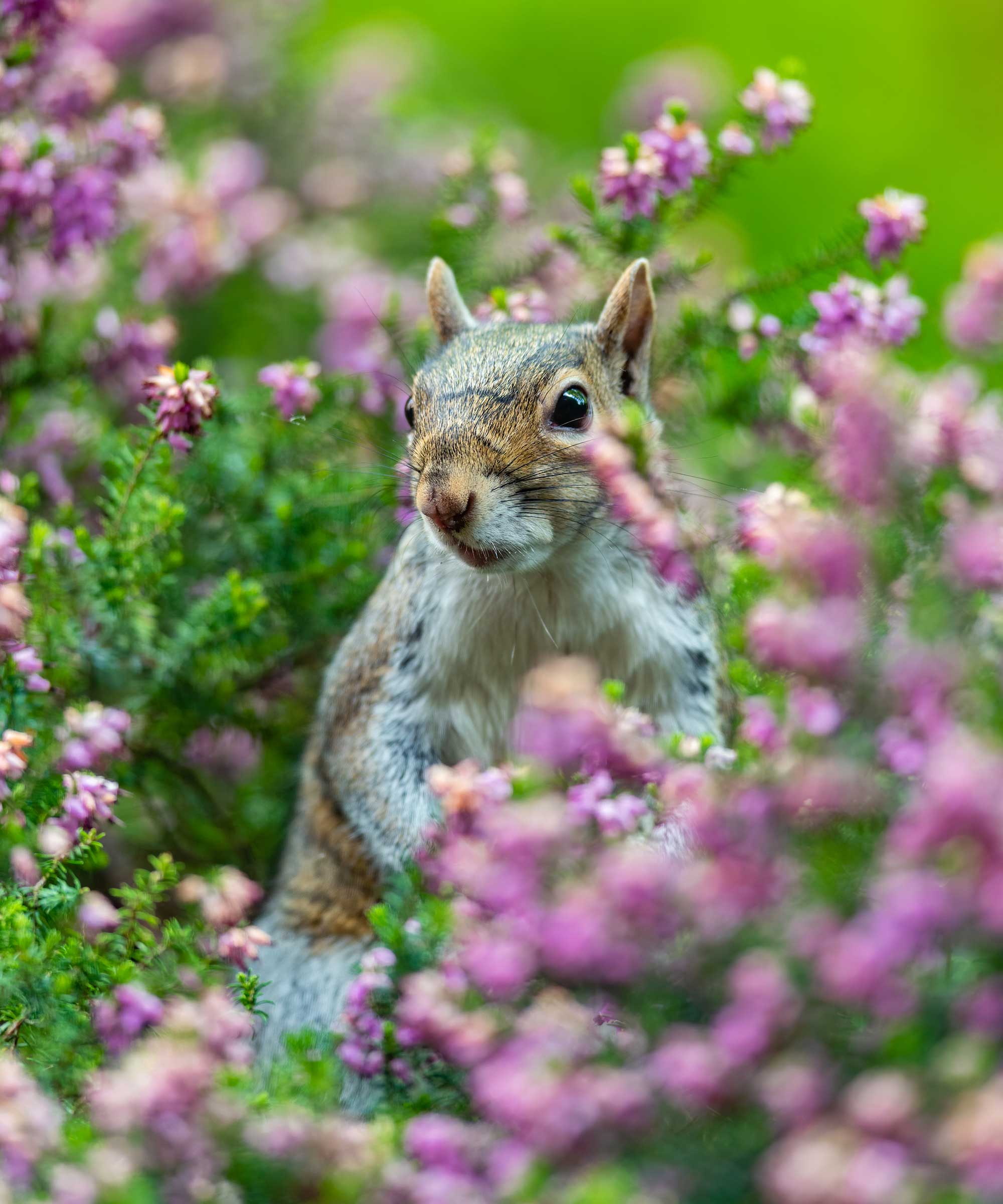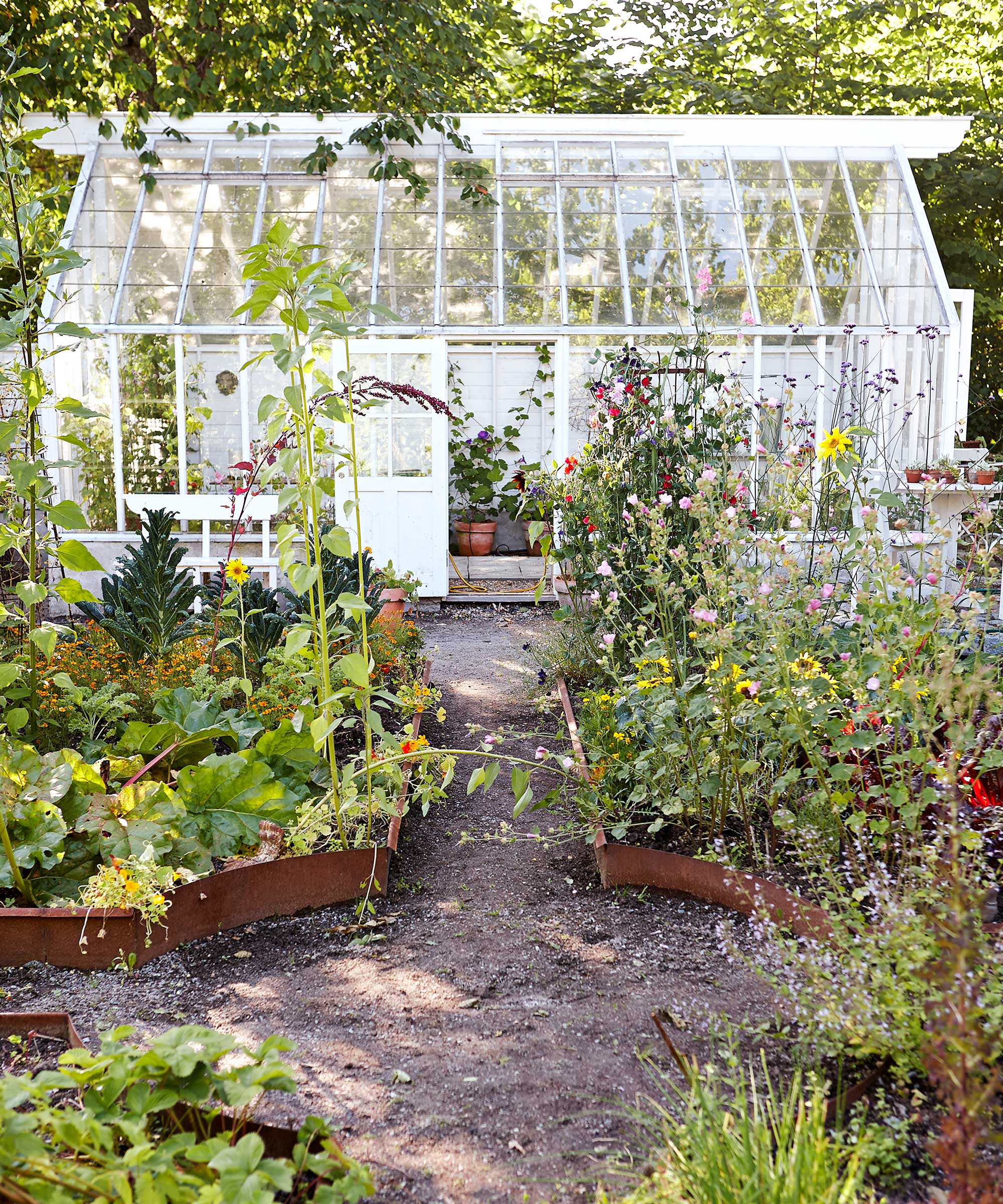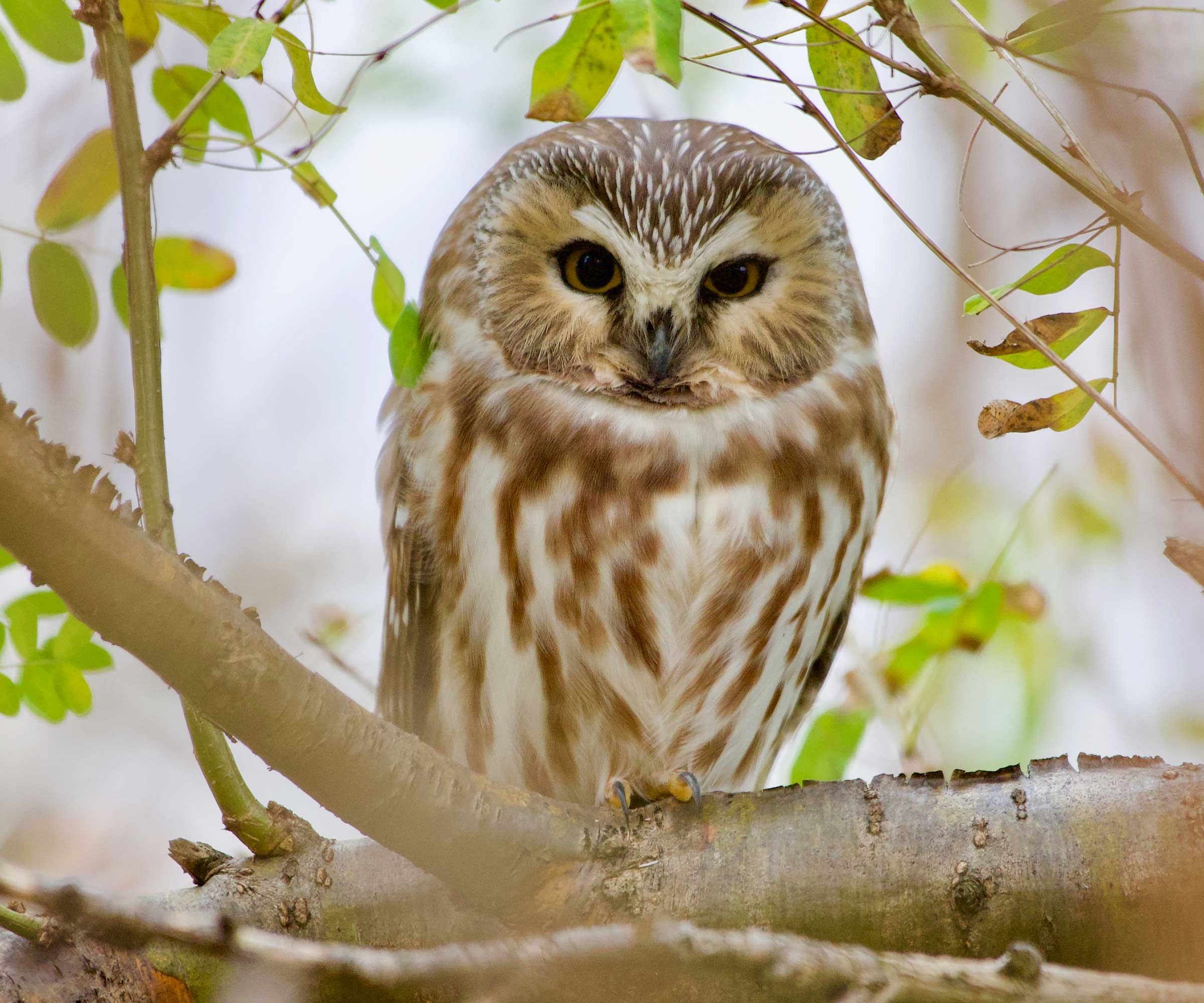
There is nothing quite as vexing as stepping into your vegetable patch to pick some ripened goodies, only to find that squirrels have beaten you to the buffet. Whilst I love the idea of embracing all wildlife in my garden, and like to think I have a live-and-let-live approach to my outdoor spaces, there is nothing quite so gut-wrenchingly disappointing as losing plants you have nurtured for months to a peckish squirrel. This poses the question, is there a method for protecting your plants and crops without harming wildlife, but that actually works?
If you're tearing your hair out, wondering how to get rid of squirrels and stop them from looting your beloved crops, then there is a fun but wildly successful method worth trying. Using 'fake' predators, such as plastic snakes or decoy owls, for example, seems to spook and intimidate squirrels so much, they will give your kitchen garden a wide berth.
Here's everything you need to know about how to deter squirrels with fake predators, and how one kitchen garden expert with years of experience in vegetable gardening has finally defeated the squirrels with this peculiar but nifty hack.
There seems to always be many unusual tricks people swear by when it comes to fending off pilfering squirrels.
Though, it would appear that after trying pretty much every trick in the book, one highly experiences and well practiced kitchen gardener has finally hit the jackpot and finally succeeded in bidding adieu to squirrels one and for all. It may seem close to ludicrous, but some small plastic predators are enough to do the job.

'Squirrels have been eating my tomatoes since I first started gardening!' says vegetable garden expert Nicole Burke.
'They can get into almost any space and then love to eat a bite or two, and then drop it. Squirrels also seem to adore newly planted greens; they'll munch away at the base of root crops like radishes and beets.
'I think with the development of more and more spaces, squirrels and other wildlife are running out of habitat and food sources, so it's natural for them to head to the garden to find food.'
'I've tried all the things to deter them,' she notes. 'The craziest thing I did was put forks in the garden with the tines pointed up! I saw somewhere on Pinterest that it would work, but sadly, it did not. I've sprinkled cayenne on plants, only for the rain to wash it away or for my mouth to be on fire because I forgot I'd done it. I've built cages to surround my tomatoes out of cedar and hardware cloth, too.'

'When I first started my vegetable garden, I had raccoons eating every little tomato the second it turned yellow. I went to a nursery and asked for help, and the cashier pointed me to some coyote urine. I was shocked, to say the least.'
'Then, I visited my parents in Mississippi and got to talk with one of their farmer friends,' she goes on. 'He had fields of tomatoes and didn't seem to have a pest problem. He showed me rubber snakes lying in between his plants and said he moved them around the farm every day when he was checking on the plants.'
Happily, you can buy plastic snakes, like this python model available at Amazon, at modest prices, so it's well worth investing in a few.
'From these two experiences, I realized the concept of predator and prey when it comes to pests in the garden.' Nicole explains. 'Essentially, if you can have a pest's predator in the garden or the suggestion that a predator could be nearby, you can often keep the pest situation under control.'

'Using 'fake' predators in the garden is part of a bigger ecosystem change that has been effective in my garden.' Nicole explains. 'The addition of fake predators works. Moving these items around the garden regularly helps to suggest they're real.'
If the thought of a plastic snake sends shivers down your spine, try a decoy owl, like this owl with a rotating head available at Amazon. They may startle you less than a faux python, and visitors to your garden, too, for that matter.
Richly scented with peppermint, which squirrels detest, these squirrel deterrent balls are highly effective.
Plant cages can help to add another layer of protection around your most at-risk plants, and this set is great value, as it can be configured in many different ways.
It might not just be your food the squirrels are after, but your garden birds, too. This clever and affordable design differentiates squirrels from small garden birds by weight – and when it detects a squirrel, the feeder ports automatically close. A must have!
It would appear that you can deter squirrels with fake predators and deter them for good, so long as you keep moving the decoy predators around, to outwit the furry fiends (otherwise those pesky squirrels might just catch on).
Remember to also plant squirrel repellent plants, which will help ward off the issue. Also, using garlic to repel squirrels seems to work wonderfully well. But its about using all these things together, that seems to have the maximum effect.







